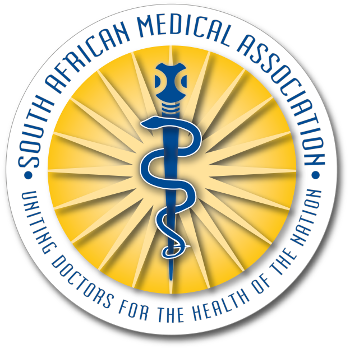SAMA statement on its submission on National Health Insurance to the Parliamentary Portfolio Committee on Health
The South African Medical Association today reaffirmed its stance on the proposed National Health Insurance (NHI) during its submission to the Parliamentary Portfolio Committee on Health saying while it supports some provisions, others lack essential detail which has far-reaching consequences for NHI implementation.
In principle, SAMA supports Universal Health Coverage (UHC), and the coverage of the whole population for a well-developed healthcare benefit, which is not based on the ability to pay for care.
However, SAMA cannot support the NHI Bill in its entirety. It expressed concerns in relation to the Draft NHI Bill which is currently in Parliament, as it did for the Draft 2018 Bill and the policy documents which preceded this piece of legislation.
It is challenging that much of the NHI detail will be in the Regulations and Rules which are yet to be developed, and therefore cannot be commented on.
In its submission SAMA again stressed that it believes the legal establishment of an NHI office and structures will be of benefit to driving the processes for UHC forward. This office will provide dedicated staff and structures to address the NHI funding mechanisms, while leaving the staff within the Department of Health to focus on their primary objectives – the delivery of healthcare to the nation.
SAMA does not, though, support the governance structures as laid down in the NHI Bill as it believes the Minister of Health has too many unfettered powers in this structure. It further believes that the Fund should be accountable to the Department of Health and vice versa. This is closer to a true purchaser-provider split as originally envisioned in the NHI policy documents.
SAMA remains concerned about the current significant quality deficits in the public sector, and that these will simply be incorporated into the new world of the NHI if significant strides in addressing these first are not made. As the Parliamentary Public hearings have served to emphasize, communities, and facilities, lack basic infrastructure, staff and support systems to run quality healthcare provision. SAMA remains engaged in multiple projects to improve the quality of healthcare delivery, but these appear to be divorced from the need for an NHI.
SAMA can also not support the Bill’s approach to asylum seekers and illegal foreigners, given that these very vulnerable groups will only be entitled to emergency medical services and services for notifiable conditions. The children of these groups will also only have limited access to healthcare. Doctors do not distinguish the need for care on the basis of legal status in the country and it would be unethical for doctors to do so. We cannot accept the situation for these groups unless there is a proposal for how their care will be funded and provided.
SAMA is also concerned that the proposed payment and contracting mechanisms for healthcare providers are on the verge of being signed into law. SAMA is in favour of evidence-based policy and law and there is far too little detail provided on these payment mechanisms for us to engage with them at this stage. The NHI pilots from 2012 to 2016 did not test these proposed mechanisms and SAMA believes that before these are signed into law, it needs to do significant work piloting these ideas and testing whether they will function for the positive benefits of the patients under NHI.
As a membership organisation, SAMA remains worried about the uncertainty and anxiety that these vague aspects of the Bill are generating amongst its membership, medical doctors in training, and learners considering medicine as a career. South Africa already suffers from a shortage of medical doctors, and SAMA is of the view that it needs to work extensively with the government to ensure that the proposals for the NHI are feasible and developed further for the sake of certainty as well as in the best interests of serving the interests of the public.
[ENDS]
